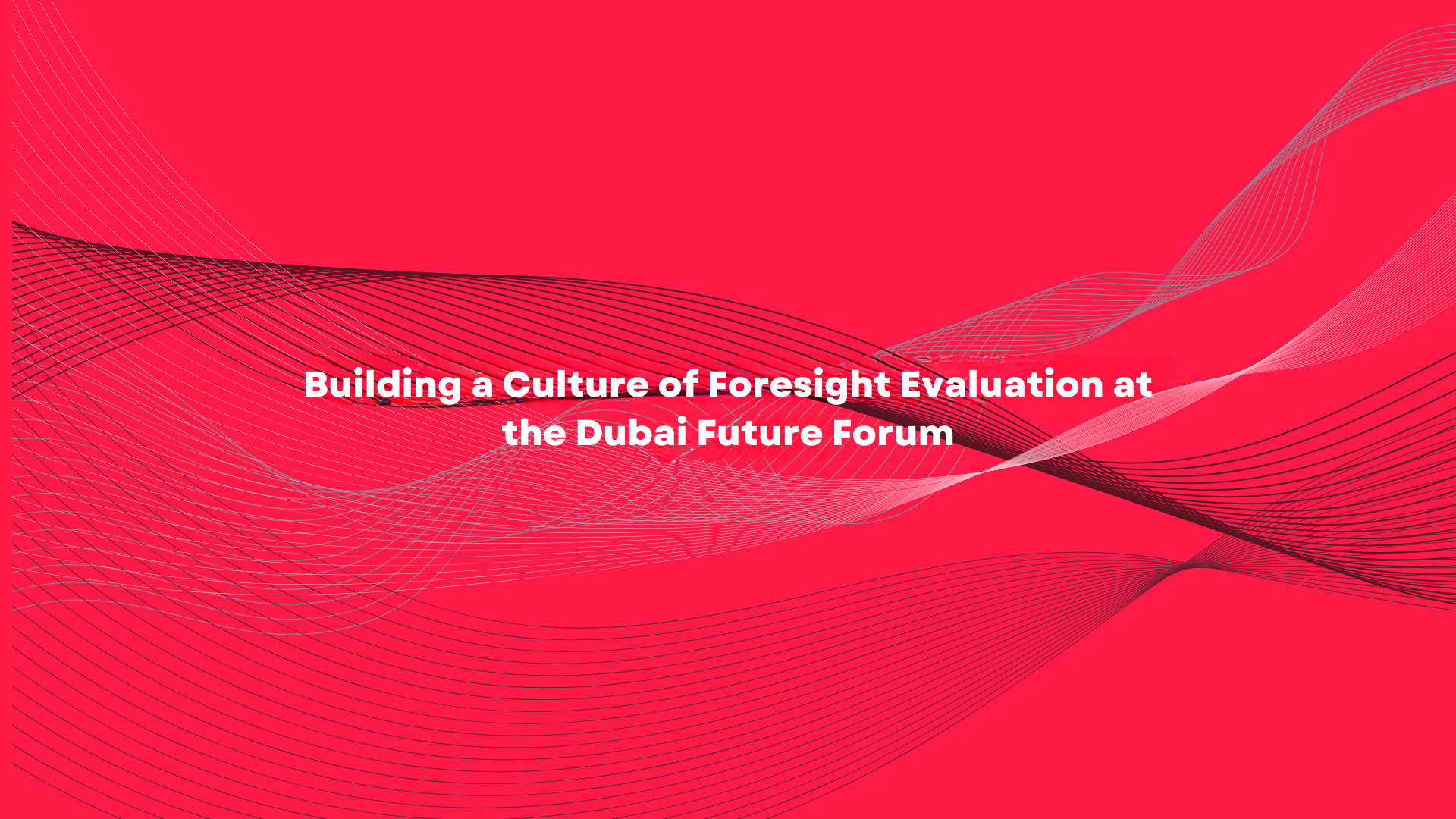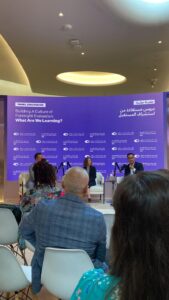
Building a Culture of Foresight Evaluation at the Dubai Future Forum

We had an excellent session on Building a Culture of Foresight Evaluation at the Dubai Future Forum, and I am so pleased to share the moment and unpack this with Annette L Gardner, PhD, and john a. sweeney.
Thanks to the DUBAI FUTURE FOUNDATION and Team, and Patrick Noack for the opportunity to delve into the work of the Association of Professional Futurists – APF Foresight Evaluation Report and discuss the case of the Center for Engaged Foresight (CEF) foresight evaluation case and approach which Annette L Gardner, PhD commented as a gold standard for foresight practitioners and researchers alike. I’ll take that comment from Annette any time of the day, lol! Thank you. That means a lot to us at the Center for Engaged Foresight (CEF)!
So, it also means we need to have more conversations and case build-up about evaluating foresight practice, work, risk, learning, culture, competency, engagement, impact, and more; futurists must collaborate and deepen their interface with professional evaluators and auditors.
Overall, incorporating evaluation into professional foresight practice offers several benefits and advantages that can enhance the effectiveness and reliability of our work for our clients, stakeholders, and the communities that we serve:
1. Evaluation provides opportunities for learning from past successes and failures. Analyzing the outcomes of foresight exercises enables practitioners to identify areas for improvement and refine design, approaches, methods, delivery, and models.
2. By integrating evaluation as part of the cycle of foresight practice, futurists and practitioners can be held accountable for their work. This accountability can improve transparency and trust in foresight practitioners and processes.
3. Continuous evaluation allows practitioners to adapt to changing work and context conditions. Evaluation enables practitioners to be contextually relevant and remain engagedly adaptive.
5. Evaluation allows practitioners to benchmark performance against global standards, if any. But I think standards or better good practice or practices must be defined. This could be framed and discussed by organizations that aim to create and acknowledge the necessity of having some means of acknowledging standards of excellence in foresight practice and future studies, such as the APF, the WFSF, the Global Future Society, or by a network of partners. This can be generative as well, like peer-to-peer, or it could be web-driven.
6. Evaluation enables organizations to allocate resources more efficiently and effectively by identifying which areas of the foresight phase or cycle, whatever you may call it, will require more or less intervention or investment.
7. Foresight practitioners who incorporate evaluation into their work can build credibility over time. Foresight evaluation demonstrates a commitment to professional and global foresight excellence for continuous improvement and learning.
For more context click on the link below:
Building a Culture of Foresight Evaluation at the Dubai Future Forum
